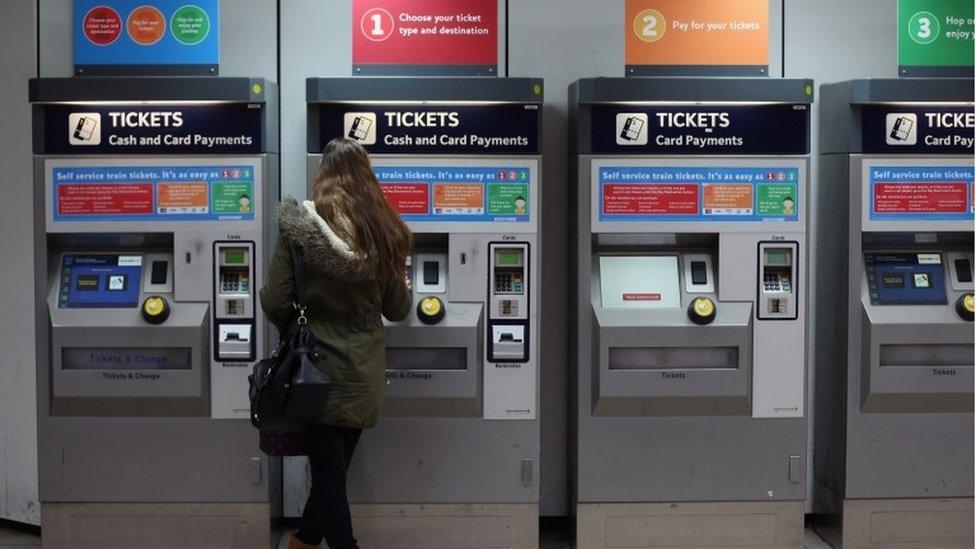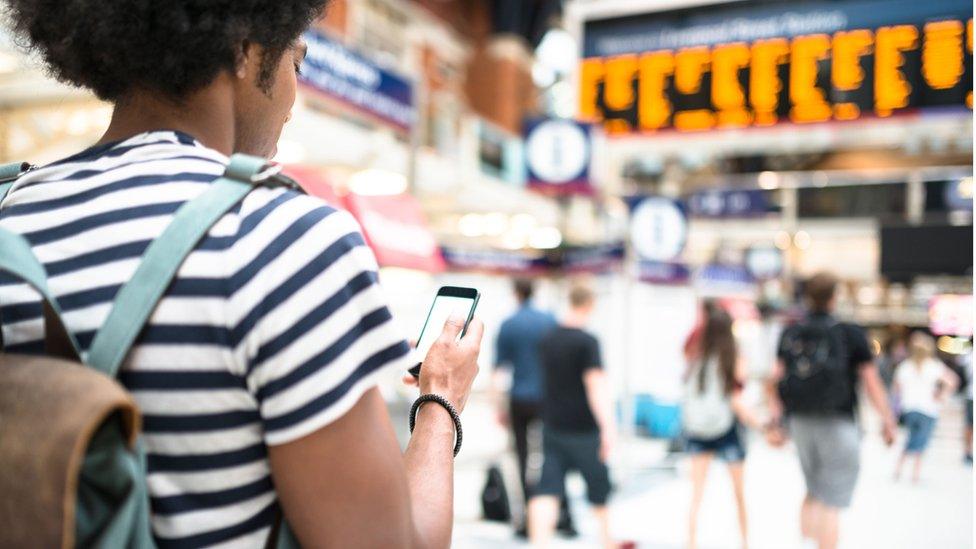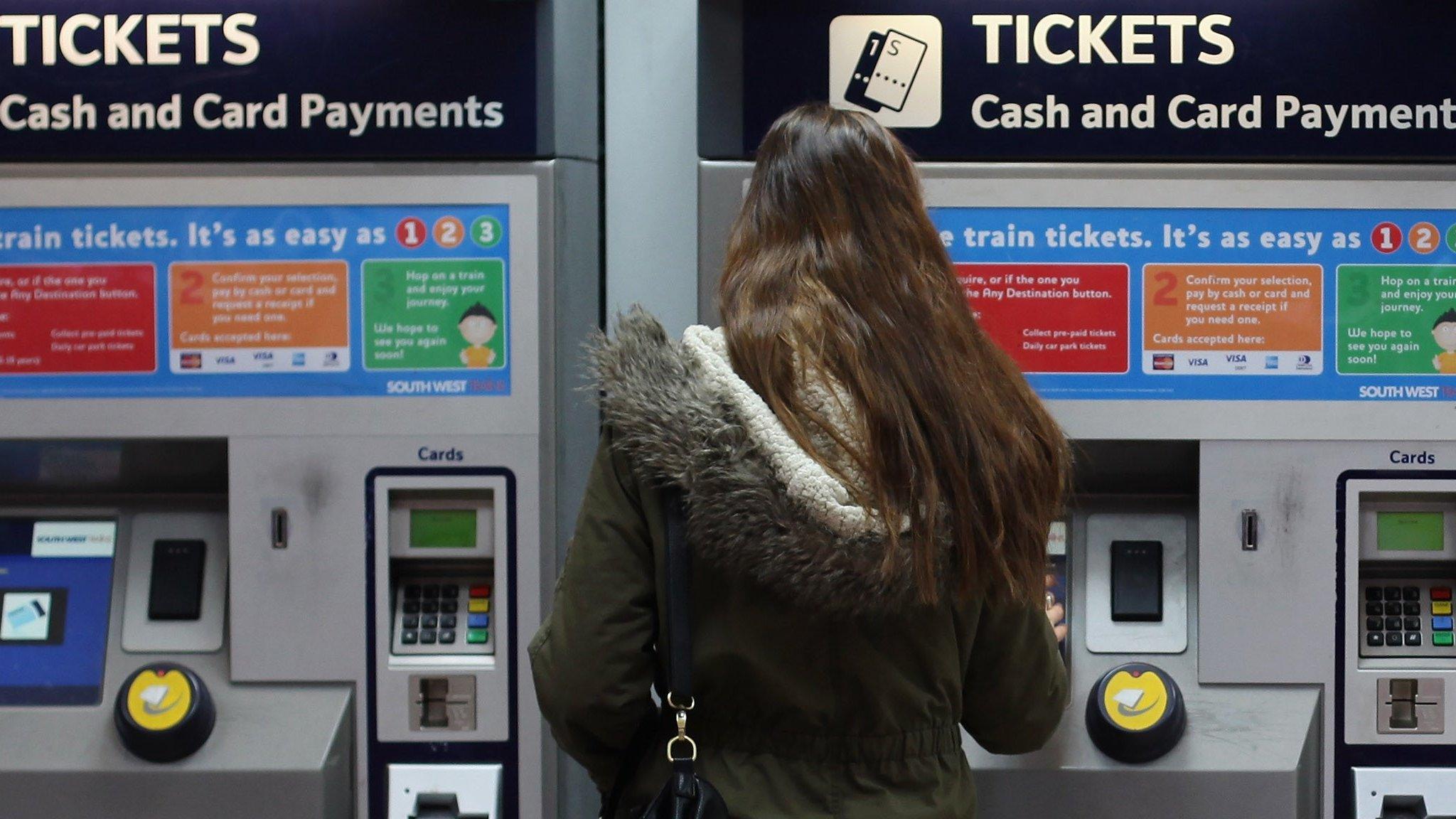Millennial railcards 'still on track', says Treasury
- Published

The Treasury says it remains "committed to making rail travel more accessible" for young people with the introduction of a railcard for 26-30 year-olds.
But no date has been set for the full release of the so-called millennial railcard, which began a limited trial in March of 10,000 cards.
It comes amid reports that the scheme could be shelved amid disagreement over who will fund them.
The card was announced in the Budget in November by Chancellor Philip Hammond.
One media report said there was wrangling over who would pick up the bill for the cards, , external which give one-third off most ticket prices in England, Wales and Scotland.
But a Treasury spokesperson said: "Following the enthusiastic response to the first wave of railcards, we are working with the industry to expand the scheme nationwide."
A spokesperson from Rail Delivery Group, the umbrella body for the firms that run the UK's railways, said it was not unusual for companies to trial a product before launching it to the market.
"We are using the insight from this trial to help us understand the types of journeys our customers are making, so that we are able to ensure that the 26-30 Railcard is the right product for our customers," they added.
"We will be using this insight to inform discussions with the government around their commitment to a national roll out of the 26-30 Railcard."
They said they were currently collating and analysing the results of the trial.
The one-year railcard for 26-30-year-olds costs £30.
The trial in March followed an earlier one restricted to the Greater Anglia network, in the east and south-east of England, which was again restricted to 10,000 cards.
Railcards were first introduced as a way for train companies to help fill seats during off-peak times. The card for 16 to 25-year-olds has existed in one form or another since 1974.
- Published12 March 2018

- Published21 November 2017

- Published21 November 2017
